TRIFLUOPERAZINE TABLET - ORAL
PHONETIC PRONUNCIATION: (TRYE-floo-oh-PER-a-zeen)
COMMON BRAND NAME(S): Stelazine
GENERIC NAME(S): trifluoperazine HCl
Uses
USES: This medication is used to treat certain mental/mood disorders (such as schizophrenia, psychotic disorders). Trifluoperazine helps you to think more clearly, feel less nervous, and take part in everyday life. It can reduce aggressive behavior and the desire to hurt yourself/others. It may also help to decrease hallucinations (hearing/seeing things that are not there). Trifluoperazine is a psychiatric medication that belongs to the class of drugs called phenothiazine antipsychotics. It works by helping to restore the balance of certain natural substances in the brain. This medication has also been used for the short-term treatment of anxiety. However, there are safer drugs to treat anxiety that should be used first before trifluoperazine.
How to use TRIFLUOPERAZINE TABLET - ORAL
HOW TO USE: Take this medication by mouth with or without food, usually once or twice daily or as directed by your doctor. Dosage is based on your medical condition, age, and response to treatment. In children, the dosage is also based on weight. To reduce your risk of side effects, your doctor may direct you to start this medication at a low dose and gradually increase your dose. Follow your doctor's instructions carefully. Take this medication regularly to get the most benefit from it. To help you remember, take it at the same time(s) each day. Although you may notice some medication effects soon after starting, it may take 2 to 3 weeks before you get the full benefit of this drug. Do not stop taking this medication without consulting your doctor. Some conditions may become worse when this drug is suddenly stopped. Also, you may experience symptoms such as upset stomach, nausea, vomiting, dizziness, and shakiness. To prevent these symptoms while you are stopping treatment with this drug, your doctor may reduce your dose gradually. Consult your doctor or pharmacist for more details. Report any new or worsening symptoms right away. Tell your doctor if your condition does not improve or if it worsens.
Side Effects
Precautions
Interactions
Overdose
Images
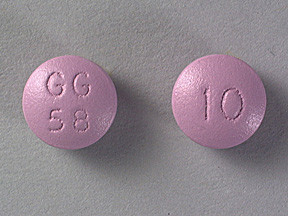
- color
- lavender
- shape
- round
- imprint
- GG 58, 10
Reviews
Faq for TRIFLUOPERAZINE TABLET - ORAL
- Trifluoperazine tablet is an oral medication used to treat certain mental/mood disorders such as schizophrenia and anxiety.
- Trifluoperazine belongs to a class of medications called phenothiazines, which work by balancing certain natural substances in the brain.
- The common side effects of Trifluoperazine tablet may include drowsiness, dizziness, blurred vision, dry mouth, constipation, and weight gain.
- Trifluoperazine tablet should be used during pregnancy only if clearly needed. It is important to discuss the potential risks and benefits with your doctor.
- Trifluoperazine tablet should be taken exactly as prescribed by your doctor. Typically, it is taken orally with or without food. Dosage may vary depending on the condition being treated.
- Trifluoperazine tablet has a low potential for abuse or addiction. However, it is important to follow the prescribed dosage and not exceed it without consulting your doctor.
- If you miss a dose of Trifluoperazine tablet, take it as soon as you remember. However, if it is close to the next scheduled dose, skip the missed dose and resume your regular dosing schedule. Do not double the dose to catch up.
- Trifluoperazine tablet may interact with other medications or substances, including alcohol, causing an increased risk of side effects. It is essential to inform your doctor about all the medications you are currently taking.
- Trifluoperazine tablet may be used in children for certain conditions as determined by a doctor. The dosage and safety may vary depending on the child's age and medical history, so it is important to consult a healthcare professional.
Warning
WARNING: There may be a slightly increased risk of serious, possibly fatal side effects (such as heart failure, fast/irregular heartbeat, pneumonia) when this medication is used by older adults with dementia. This medication is not approved for the treatment of dementia-related behavior problems. Discuss the risks and benefits of this medication, as well as other effective and possibly safer treatments for dementia-related behavior problems, with the doctor.
Disclaimer
IMPORTANT: HOW TO USE THIS INFORMATION: This is a summary and does NOT have all possible information about this product. This information does not assure that this product is safe, effective, or appropriate for you. This information is not individual medical advice and does not substitute for the advice of your health care professional. Always ask your health care professional for complete information about this product and your specific health needs.
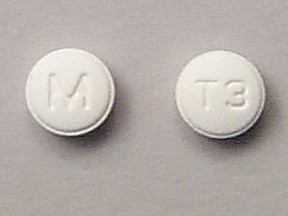
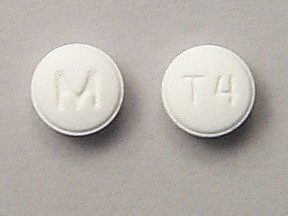
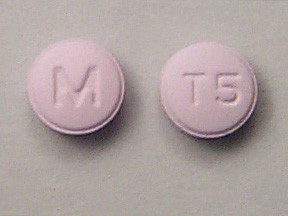
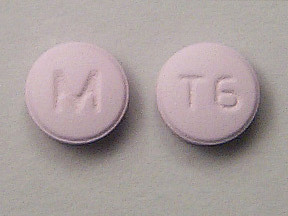
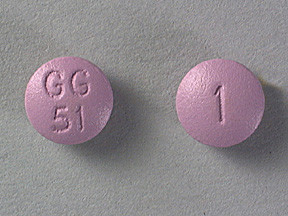
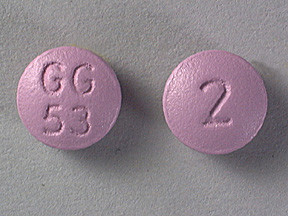
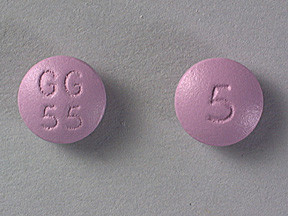
No Reviews Yet